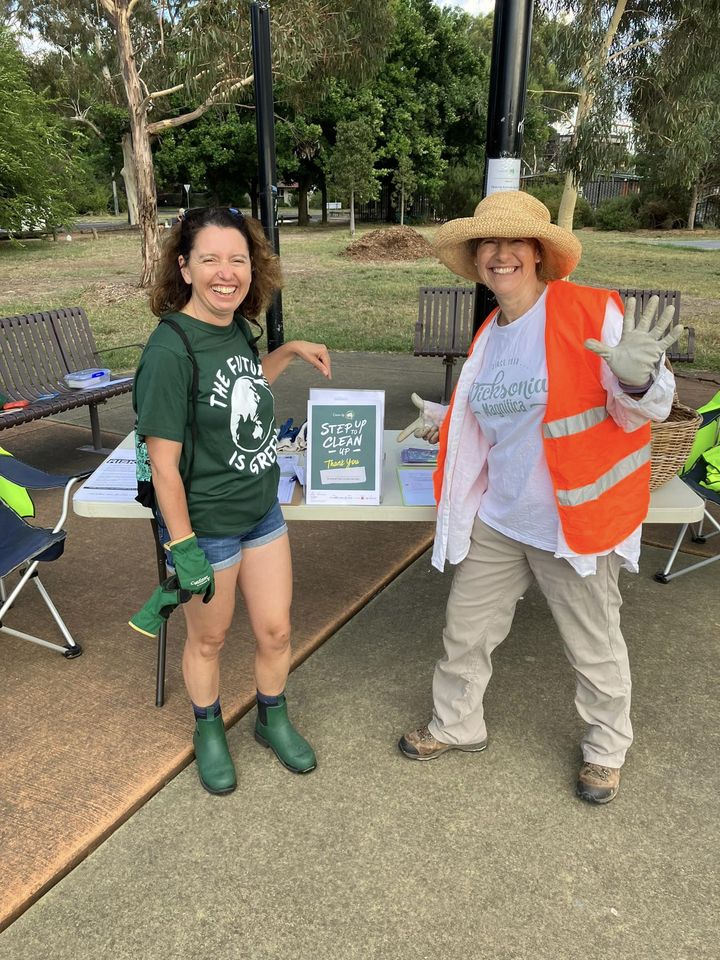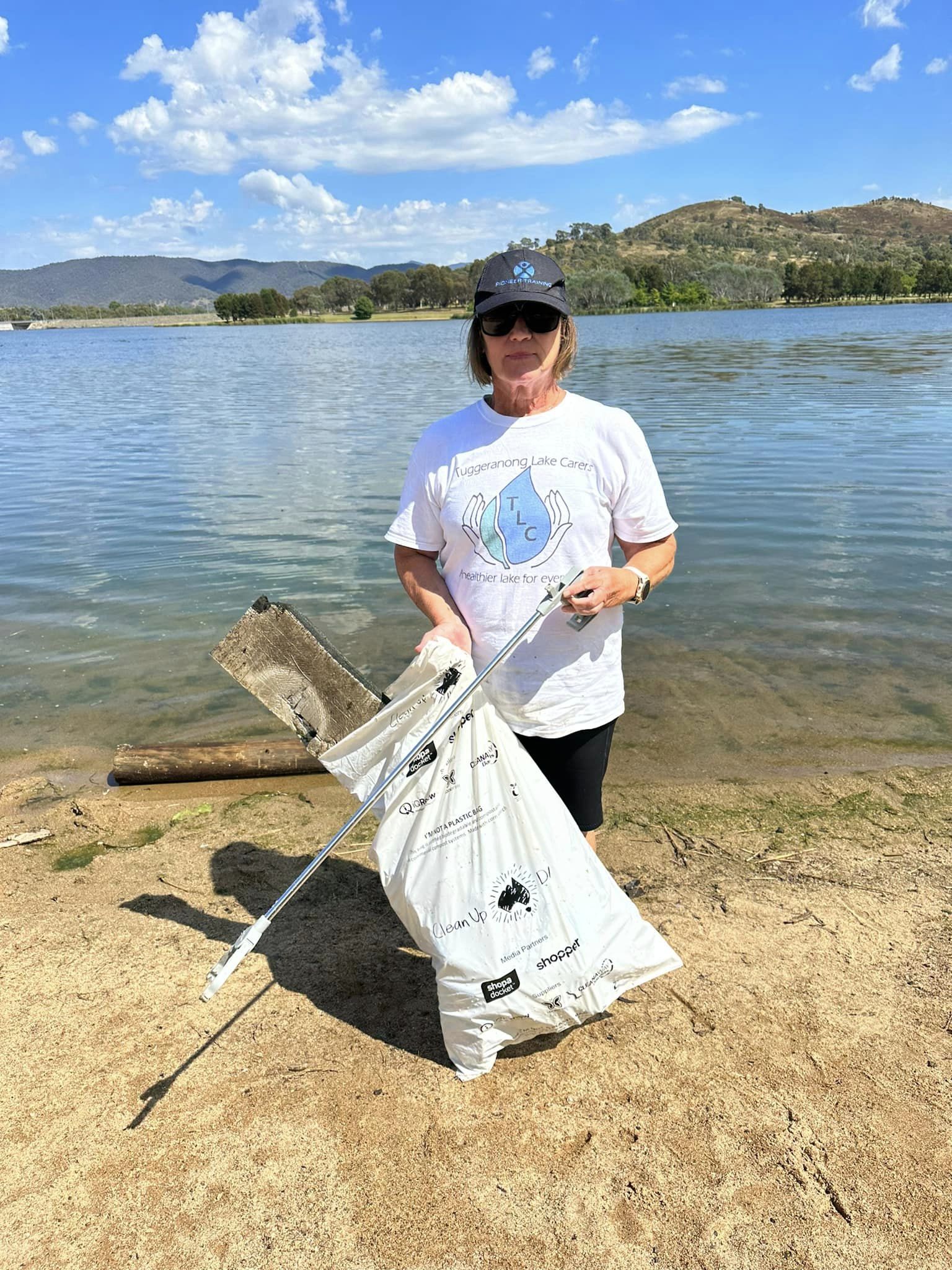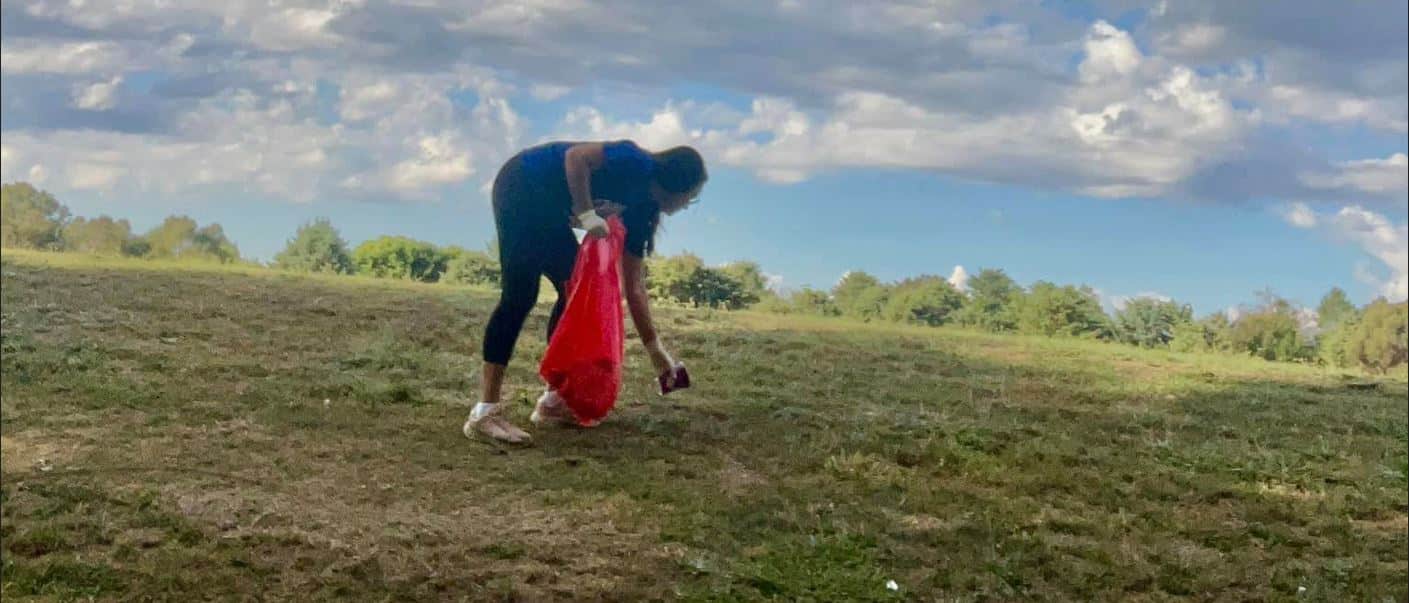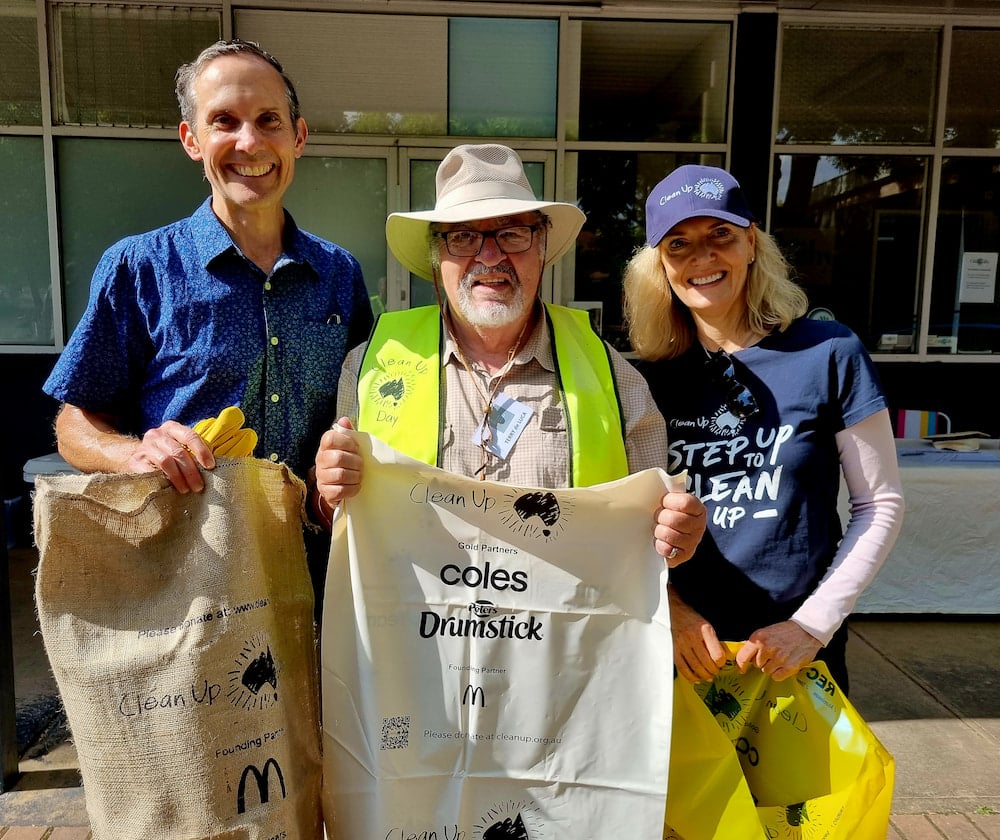Clean Up Australia Day, held on the first Sunday of March every year, is the nation’s largest community-based environmental event – and this year was a bumper year, Terry de Luca said. He should know; he has co-ordinated Hackett’s Clean Up Australia Day volunteers for 20 years.
“I’ve always believed that you have to think globally, but act locally,” Mr de Luca said. “It’s very hard to save the planet, but you can clean up your local area. … You can look after the planet just by cleaning up Australia.”
Thousands of people agree with Mr de Luca: 750,000 across the country, and 25,000 in Canberra alone.
“People often express their concern about the state of the environment, but feel frustrated about how to make a positive impact,” Clean Up Australia’s chair, Pip Kiernan, said. “Around three quarters of a million Australians took action, and stepped up to make a real difference.”
Across the country, attendance figures this year were 30 per cent higher than previous years. In Hackett, Mr de Luca said, 40 volunteers took part – twice as many as in 2021, and 15 more than last year. A few years ago, only five or six people might take part.
Those lower numbers, Mr de Luca believes, were because the pandemic affected community activities. This year, however, was a community event with a barbecue; people were keen to get out into the sun and meet other people, he thought.
Clean Up Australia’s CEO, Jenny Geddes, and Dr Andrew Leigh MP, Assistant Minister for Charities, Competition, and Treasury, joined the Hackett effort to acknowledge Mr de Luca’s two decades of volunteering.
“I was surprised that they made such a big deal of this,” Mr de Luca said. “I just do it because I’ve been doing it for so long it’s become part of my DNA. I don’t mind doing it.”
Mr de Luca, the founding chair of the Hackett Community Association, started clean-ups at a couple of schools; that flowed onto doing it in the local area.
“It’s only one day a year; it’s not much of a burden. But it’s becoming a community building activity, which is a really positive move in the right direction. It’s not just about cleaning up, but it’s about meeting people and connecting with your local community.”
Organising the event was not difficult, Mr de Luca thought; the problem was letting people know it was on. He advertises with signs around the suburb. Chris Mobbs, the current chair, and his wife Barbara promoted the event through social media and newsletters.
Dr Leigh did “a tremendous amount of work” promoting Clean Up Australia, Mr de Luca thought, while Labor and Green MLAs have been involved over the last few years.
“Clean Up Australia is great for the environment and great for the community,” Dr Leigh thought. His sons and their Scout troop took part.
“When they return from an hour or two of picking up garbage in the neighbourhood, my three boys are nicer people than if they’d been glued to their iPads – and that’s probably true of their parents, too!”
Rubbish in Hackett has declined over the last couple of years, Mr de Luca observed. Nevertheless, they collected plenty of cans, plastic and glass bottles, chocolate wrappers, and bits of plastic.
Cigarette butts, too. Made of non-biodegradable plastic, they take 15 years to break down – and are a problem if animals chew them.
While cigarette butts are the most collected litter item, Ms Kiernan said, across Australia, volunteers are picking up more vapes: “An environmental triple threat, as they’re plastic, electronic, and hazardous waste.”
Mr de Luca, however, is concerned that Clean Up Australia volunteers have to pay to dispose of the rubbish they gather. He believes they should be able to do so for free. In NSW and Queensland, he said, tips do not charge Clean Up Australia volunteers. But not in the ACT. He believes this is due to a communication issue; ACT tips and refuse stations are not aware of the event.
Mr de Luca said that disposing of the rubbish his group collected on Sunday cost $29.50, while bigger loads cost $50. While the Hackett Community Association will cover those costs, paying fees, in his opinion, deters volunteers from disposing of large loads (such as bedframes left on parkland).
Canberra Daily has contacted REMONDIS, which manages the Mugga Lane and Mitchell Resource Management Centres, for comment.
While the official day is the first Sunday of March, volunteers can register online to Clean Up Australia Day any day of the year, Mr de Luca said. That way, they are covered by Clean Up Australia’s public liability insurance. Registration also counts how many people take part, and logs what they collect and remove from the environment.
Ms Kiernan added: “We’re very well known for our national day of action, but … we support Aussies taking practical environmental action every day of the year.”
Australians can make many everyday changes to complement efforts on Clean Up Australia Day.
“We can opt for reusable shopping bags and coffee cups; avoid single use plastics; make purchases with longevity in mind; and actively seek out reusable and recycled packaging,” Ms Kiernan said. “These are small, simple steps we can take to reduce, reuse, and refuse as often as we can.”
“The environment needs to be looked after; it’s not going to look after itself,” Mr de Luca said.
Local ACT politicians Clean Up Australia
Several members of the ACT Legislative Assembly took part in Clean Up Australia Day.
Greens MLA Rebecca Vassarotti, ACT Minister for the Environment, described the event as “a fantastic opportunity for our community to come together, appreciate our environment, clean up after ourselves, and take note of the sources of unnecessary pollution”.

She got to three events in her local community, beginning in Dickson. Most organisers remarked that there was much less rubbish this year than when the initiative first began – including a noticeable lack of single-use plastic bags.
“We’ve made some great progress on waste over the last few years in the ACT,” Ms Vassarotti thought.
By the time she got to Hackett, there wasn’t much rubbish left. “I was even approached by the local Scouts who were taking aluminium cans to the counter deposit machine.”
Ms Vassarotti thanked everyone in the ACT who picked up a pair of gloves and volunteered their time.
“Our streets and parks have never looked so beautiful.”
Her Greens colleague, Emma Davidson MLA, helped to clean up the rugby oval in North Curtin.
“Didn’t find any disposable masks or beer bottles this time, but still way too much lightweight plastic from food wrapping,” she posted on Facebook. “These little bits of plastic end up in Yarralumla Creek, and cause so much harm to healthy waterways and habitat. Mostly it was along the roadside and cycle path, not the oval itself.”
Liberal MLA Nicole Lawder, Shadow Minister for Environment, Heritage and Water, spent the day on Lake Tuggeranong, collecting plastic bottles stuck in the reeds. She thought it was great to see volunteers from the Lake Tuggeranong Sea Scouts and the Tuggeranong Community Council turn out to clean up the lake.
“Residents care about their local environment, and it’s occasions such as this that demonstrate just how much,” Ms Lawder said.

Another Liberal MLA, Elizabeth Kikkert, helped the Florey Neighbourhood Watch clean up the shops and oval.
“Living in a clean environment makes life healthier and more pleasant,” Mrs Kikkert wrote on Facebook. “Improves the neighbourhood as a whole. Makes the place desirable place to live and work. Junk got picked up. And I sang through it. Yeah, it was a happy feeling clearing the place from rubbish.”




